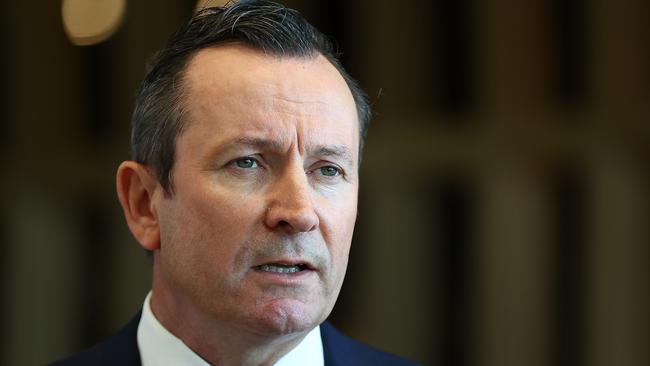Coronavirus: Why state border closures passed court test

The latter view has been borne out by the distinct lack of success of three court challenges brought against lockdowns. Rulings this month have in each case handed governments a decisive victory.
The most prominent challenge was brought by Clive Palmer to Western Australia’s hard border closure. After being denied entry to the state, he argued there had been a breach of the seemingly unequivocal words in section 92 of the Constitution that “trade, commerce, and intercourse among the states … shall be absolutely free”.
The High Court released its orders rejecting Palmer’s challenge. These held that in “an emergency constituted by the occurrence of a hazard in the nature of a plague or epidemic” the state could close its borders.
The High Court judges have yet to provide reasons for their orders in Palmer’s case. This reflects the desire of the court to release the result quickly, even if the justification for that result needs to wait. Their reasons may show that other challenges to lockdowns are doomed to fail, or that there are limits to how far states can go in cutting themselves off from the nation during the pandemic. For example, border closures may become unconstitutional as the pandemic wanes or as a vaccine is rolled out. Or it may be impermissible to prevent Australians from entering a state from a low-risk area. We will have to wait and see.
A second High Court challenge was brought by hotelier Julian Gerner. He attacked the prohibition on Melburnians travelling more than 25km from their home.
His legal team tried every conceivable avenue of showing that the restriction conflicted with a constitutionally guaranteed freedom of movement. No words of the Constitution set out such a freedom, but it was argued that it must be implied from the document. This could result from the Constitution creating a united and indissoluble nation and because the freedom is consistent with the Constitution’s plan for a “a free and confident society”.
The High Court gave these arguments short shrift, recognising that aspirations for “a free and confident society” do not amount to a legal restriction on government power. After hearing Gerner’s arguments over the course of a morning, the High Court ended the case prematurely by unanimously finding there was no legal basis upon which it could overturn Victoria’s restrictions. The court did so without needing to hear Victoria’s defence of its measures.
A third challenge was mounted in the Victorian Supreme Court by cafe owner Michelle Loielo. She argued the 9pm-5am curfew imposed in Melbourne breached the Victorian Charter of Human Rights and Responsibilities. In particular, she pointed to her freedoms of movement, liberty and security, her right not to be detained arbitrarily and her right not to be deprived of liberty as set out in the charter.
Justice Tim Ginnane recognised that the curfew was “a major restriction of human rights and liberties of the free people of Victoria” and that no curfew had been imposed in Victoria “in living memory”. Nonetheless, he held that the curfew was consistent with the charter. The judge recognised governments can restrict individual rights in favour of community protection at a time of emergency, and the curfew was proportionate to protecting public health. It was significant that the curfew was temporary and there were no other reasonable means by which the government could safeguard the community during the second wave of the infection.
The outcomes in these cases were unsurprising. Australia’s courts have a long record of deferring to government at a time of national crisis. Judges recognise that our leaders need the leeway to make difficult and contentious decisions to protect the community from danger. This was especially apparent during World War II.
During that conflict, the commonwealth assumed almost total control of the nation to direct every resource to its defence. The High Court even upheld a ban on references to Christmas in advertisements for the sale of goods. The ban was justified because such advertisements could encourage expenditure on non-essential items.
The failure of the three lockdown challenges this year and the absence of a national scheme of infection control removes any immediate prospect of overturning the state border closures and other restrictions. This leaves premiers and chief ministers with a wide discretion to make tough decisions to protect their community from infection. The result is an Australian pandemic response that naturally prioritises state interests over the national interest. This has reinvigorated states’ rights and has boosted the popularity of our state leaders and their power within the federation.
George Williams is a deputy vice-chancellor and professor of law at the University of NSW.



The lockdowns around Australia have generated few court challenges. By and large, people have complied with the law without protest or resort to litigation. This reflects community support for governments during the pandemic, as well as a pragmatic assessment that the courts are unlikely to intervene.